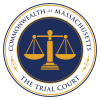- Trial Court Law Libraries

Article 3 (1780)
As the happiness of a people, and the good order and preservation of civil government, essentially depend upon piety, religion and morality; and as these cannot be generally diffused through a community, but by the institution of the public worship of God, and of public instructions in piety, religion and morality: Therefore, to promote their happiness and to secure the good order and preservation of their government, the people of this commonwealth have a right to invest their legislature with power to authorize and require, and the legislature shall, from time to time, authorize and require, the several towns, parishes, precincts, and other bodies politic, or religious societies, to make suitable provision, at their own expense, for the institution of the public worship of God, and for the support and maintenance of public Protestant teachers of piety, religion and morality, in all cases where such provision shall not be made voluntarily.
And the people of this commonwealth have also a right to, and do, invest their legislature with authority to enjoin upon all the subjects an attendance upon the instructions of the public teachers aforesaid, at stated times and seasons, if there be any on whose instructions they can conscientiously and conveniently attend.
Provided, notwithstanding, that the several towns, parishes, precincts, and other bodies politic, or religious societies, shall, at all times, have the exclusive right of electing their public teachers, and of contracting with them for their support and maintenance.
And all moneys paid by the subject to the support of public worship, and of the public teachers aforesaid, shall, if he require it, be uniformly applied to the support of the public teacher or teachers of his own religious sect or denomination, provided there be any on whose instructions he attends; otherwise it may be paid towards the support of the teacher or teachers of the parish or precinct in which the said moneys are raised.
Any every denomination of Christians, demeaning themselves peaceably, and as good subjects of the commonwealth, shall be equally under the protection of the law: and no subordination of any one sect or denomination to another shall ever be established by law.
Article of Amendment, Article 11 (1833)
Instead of the third article of the bill of rights, the following modification and amendment thereof is substituted.
As the public worship of God and instructions in piety, religion and morality, promote the happiness and prosperity of a people and the security of a republican government; — therefore, the several religious societies of this commonwealth, whether corporate or unincorporate, at any meeting legally warned and holden for that purpose, shall ever have the right to elect their pastors or religious teachers, to contract with them for their support, to raise money for erecting and repairing houses for public worship, for the maintenance of religious instruction, and for the payment of necessary expenses: and all persons belonging to any religious society shall be taken and held to be members, until they shall file with the clerk of such society, a written notice, declaring the dissolution of their membership, and thenceforth shall not be liable for any grant or contract which may be thereafter made, or entered into by such society: — and all religious sects and denominations, demeaning themselves peaceably, and as good citizens of the commonwealth, shall be equally under the protection of the law; and no subordination of any one sect or denomination to another shall ever be established by law.
Quotations
Benjamin Franklin, letter to Richard Price, 1780, quoted by Alexander H. Bullock, “The Centennial of the Massachusetts Constitution”, 1 Proceedings of the American Antiquarian Society 189, 229-230 (1882):
“Though the people of Massachusetts have not in their new constitution kept quite clear of religious tests, yet, if we consider what that people were a hundred years ago, we must allow they have gone great lengths in liberality of sentiment on religious subjects; and we may look for greater degrees of perfection, when their constitution, some years hence shall be revised.”
Massachusetts Historical Society, Adams Papers Digital Edition, Papers of John Adams, volume 8, “The Report of a Constitution or Form of Government for the Commonwealth of Massachusetts,” footnote 12:
“According to J[ohn] A[dam]’s own account, he did not write Art. III: ‘The Article respecting Religion. . . was the only Article which I omitted to draw. I could not satisfy my own Judgment with any Article that I thought would be accepted: and farther that Some of the Clergy, or older and graver Persons than myself would be more likely to hit the Taste of the Public’ (JA to William D. Williamson, 28 Feb. 1812, Maine Historical Society). In a more revealing oral statement, JA elaborated: “I found I could not sketch, consistent with my own sentiments of perfect religious freedom, with any hope of its being adopted by the Convention, so I left it to be battled out in the whole body” (as stated to Josiah Quincy and recorded in the latter’s diary entry for 31 May 1820, in Edmund Quincy, Life of Josiah Quincy, Boston, 1867, p. 379). If JA really thought that ‘Some of the Clergy, or older and graver Persons’ could draft a more popular article, however, he was mistaken. Art. III of the Report caused over a week of contentious debate, and was completely rewritten. The final version was one of the least liked parts of the finished document, and Samuel Eliot Morison demonstrated that the article did not secure the required two-thirds vote for ratification in 1780, although it was declared, with the rest of the Constitution, to be ratified (Morison, “The Struggle over the Adoption of the Constitution of Massachusetts, 1780,” 50 Massachusetts Historical Society Proceedings 353 (1916–1917). Massachusetts did not end state support of religion until 1833 (Amendment XI).”
